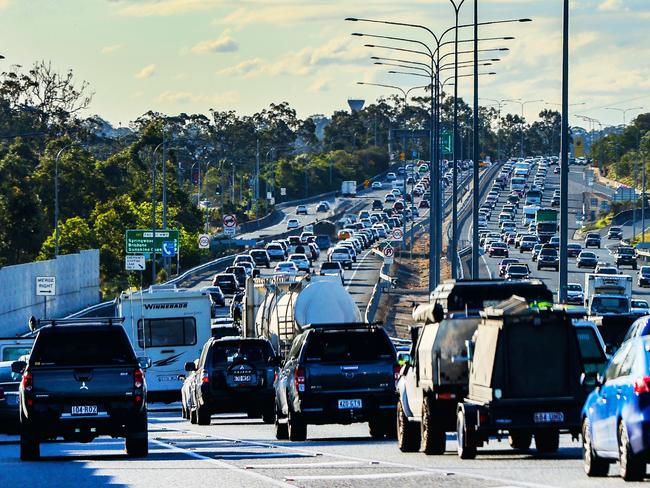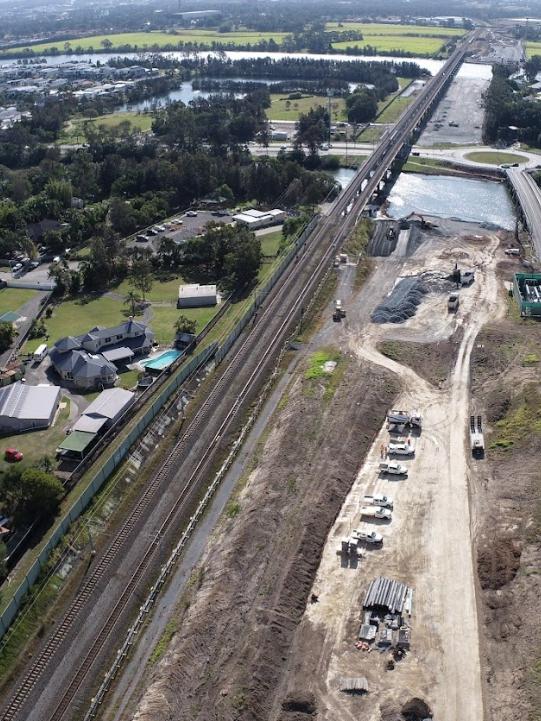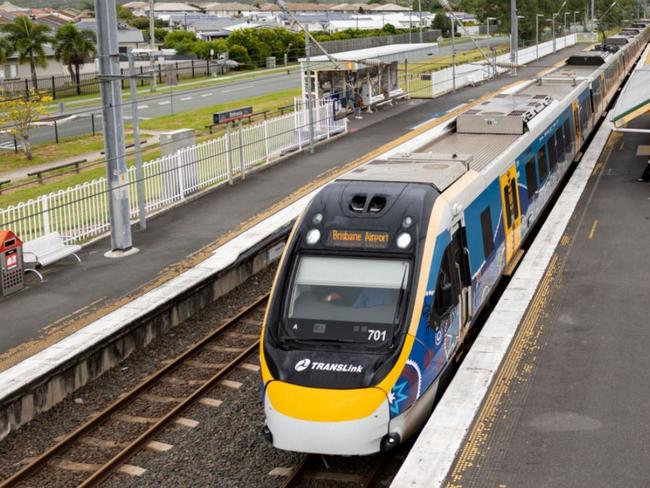RAIL FAIL: Unfair fares and slow speeds are a public transport train-wreck
From expensive tickets to train speeds that are off-track, it’s hard to understand why any M1 commuter would swap the convenience of their car for the pains of public transport
Opinion
Don't miss out on the headlines from Opinion. Followed categories will be added to My News.
From the carpark that is the M1, to the gridlock of the Gold Coast’s arterial roads – the drive to get people out of their vehicles and into public transportation has never been more critical.
And yet, inexplicably, we’re being let down by one big rail fail.
From unfair fares to train speeds that are off-track, it’s hard to understand why anyone would swap the convenience of their car for the pains of public transport.

According to the 2021 census, almost 17 per cent of working residents on the Gold Coast travelled outside this city for employment.
That’s about 50,000 people, with the bulk of those headed to Brisbane.
So, if you were one of these residents, which transportation option would you choose?
Let’s say you live at Varsity Lakes and work near Brisbane’s Roma Street station … travelling round-trip, five days a week, using a GoCard will cost $145.50, with each trip taking one hour 17 minutes.
Compare this to driving the 86km along the M1, using a common car like the 2020 Mitsubishi Outlander AWD.
According to carexpert.com.au, the vehicle has a 60L fuel tank that can travel 833km when full. With petrol $1.90 per litre at the time of writing, a full tank would cost $114 and be just shy of the week’s 860km commute.
Google Maps estimates a drive time of one hour and one minute, although many a Monday morning driver might disagree.
Regardless, it’s clearly cheaper to drive, disregarding the purchase and maintenance costs of vehicle ownership. And while the drive time is debatable … it’s absolutely more convenient.

Which is precisely why figures from the 2021 census showed that the number of Gold Coast residents driving to work has increased by an incredible 5.7 per cent since 2016, up to 62.9 per cent, or 207,426 people, in 2021.
By comparison, the number travelling by train dropped from 2.5 per cent in 2016 to a minuscule 1.1 per cent in 2021, a loss of 1400 passengers.
It’s proof that the only hope to remove people from the road and into public transportation is to remove every barrier possible.
Convenience will always be a cost, but we can do so much better when it comes to ticket prices, as well as speed of transport.
And yet, we’re not.
Instead, we just continue investing in the dead-end street of more roads.
While the government might crow about the Coomera Connector and works are underway to improve the M1, it’s literally not worth it.
That’s thanks to the phenomenon called Induced Demand, where as soon as a new road is built, more cars come to fill it.

Take the Sydney Harbour Bridge. Between 1986 to 1991 about 180,000 cars crossed the bridge each day. In 1992, the new tunnel opened and by 1995 there were 250,000 cars crossing daily. That’s a traffic increase of 38 per cent, compared to a population increase of just four per cent.
So rather than build more roads, which only take up more precious land and emit ever more toxic fumes, why not use the money to subsidise train fares?
If we’re talking $30pw for rail tickets instead of filling the car for $114, that might be the difference to finally make public transport popular.
Well, that and speeding up the train times. Because while the state government proudly spruiks its incoming ‘faster rail’ for Brisbane to the Gold Coast, the facts show this is way off-track.
Not only do these upgrades stop about 50km short of the Coast, but Rail Back on Track advocacy group spokesman Robert Dow told the Brisbane Times that cars would still most likely be faster than ‘faster rail’.
“[The track from Kuraby to Beenleigh] will be straighter, and there will be four tracks instead of two. The trains will be able to run a little bit more reliably and a little bit more frequently, but not necessarily any great deal faster,” he said.

And the cherry on top? Infrastructure Australia’s analysis notes that, while safer, ‘the cost of the project significantly exceeds the quantifiable benefits’. That is, it’s just not worth it.
Compare that to actual high speed rail, a project long-mooted to connect the Gold Coast, Brisbane and Sunshine Coast.
As well as its 200kmh speed and 32-minute travel time from Coast to capital, a comprehensive study commissioned under now-Prime Minister Anthony Albanese found high speed rail was absolutely viable, and would return over $2 for every $1 of investment.
With population growth that won’t stop, climate change exacerbated by pollution and an unrelenting cost-of-living crisis, the only road ahead is to create better, faster and cheaper public transportation. Driven, of course, by trains.





